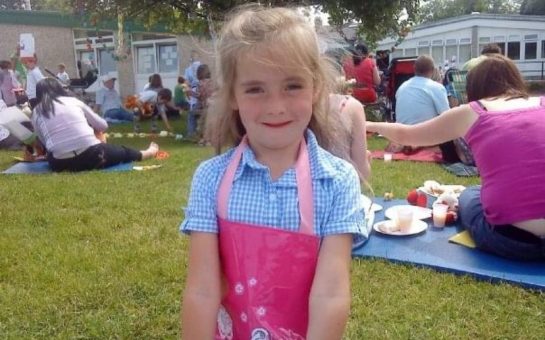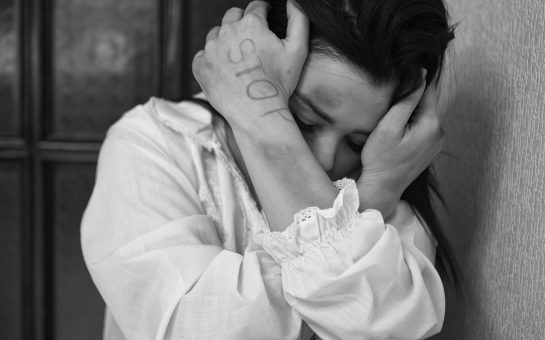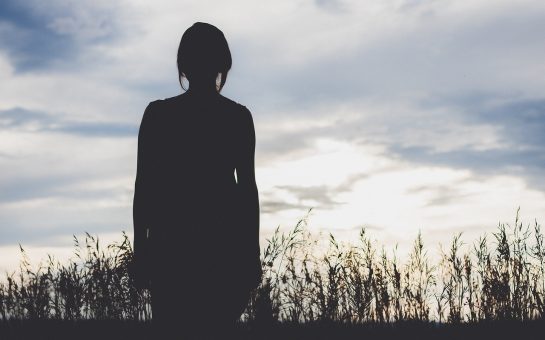“Yeah definitely, it’s hard to talk about. It’s definitely easier to write about it than to talk about it.”
Harriet Williamson is a freelance journalist, whose articles have appeared in a host of the most respected publications in the country, so it’s logical she feels more comfortable expressing herself in writing.
And that’s what makes her decision to use her own traumatic experiences to raise awareness of borderline personality disorder (BPD), something she was diagnosed with in 2012 but has struggled with since she was 14, all the more remarkable.
BPD is a personality disorder which causes emotional instability and can manifest itself in different ways.
I’m crowdfunding for my art series that will help explain & eradicate stigma around Borderline Personality Disorder https://t.co/fS3p7cZCsQ
— Harriet Williamson (@harriepw) November 8, 2015
Depression, anorexia and bulimia, self-harm and suicide attempts will form the landscape of an intimate exhibition chronicling Harriet’s battles with BPD, which she is hoping to showcase in a Manchester gallery and is fundraising for via Crowdfunder.
“I don’t particularly want people to see these things, but I think it’s important,” she told MM.
“I couldn’t do it otherwise, I couldn’t make it as powerful.
“If I can get something good out of a fairly rubbish situation then I’m going to.
“The reason I’m doing this is because I felt really lost and alone for many years, and I didn’t understand what was wrong with me. And other people didn’t understand either.
“I don’t want people to have to suffer in silence. I want to be helpful to other people.
“If by speaking about it and writing about it I can help people to understand it and break down the stigma which still surrounds it then that’s a good thing.”
I hit 11 backers for my mental health art seires! THANK YOU! Please keep donating! https://t.co/4B7YFEar1b pic.twitter.com/Wu9fjLH7q6
— Harriet Williamson (@harriepw) November 9, 2015
Harriet explained that BPD is a ‘very misunderstood’ illness as symptoms vary between people with the same diagnosis, and because of sufferers’ tendencies towards ‘impulsive behaviour’.
Again, this can manifest itself in different ways, but when ‘dangerous and reckless behaviour’ was used as a coping strategy, people can judge sufferers as ‘bad’, ‘difficult’ or ‘attention-seeking’.
“From an outside perspective it looks like that person is behaving really badly but, no, that’s not actually what’s going on,” she said.
“It’s a really negative thing when people don’t understand you.
“You feel guilty, you start thinking ‘I am a bad person and it can’t possibly be to do with the illness’, then you start feeling like a freak because you’re not well.”
That quest for understanding is a major motivator in Harriet’s decision to discuss her problems both through her writing and through the ambitious exhibition she hopes to unveil in 2016.
The Crowdfunder website has been set up to raise £500 for materials to create artwork, collages and video pieces, to go with photographs and diary extracts.
Depression, stress or something else, mental health comes in many forms – so can the convos around it. #nojudgment pic.twitter.com/jr0b254tSg
— YoungMinds (@YoungMindsUK) November 30, 2015
Any money raised over the target will be donated to Young Minds UK – a mental health charity which supports young people with mental health issues, and of which Harriet is an ambassador.
At the time of writing, Harriet has raised £352, 70% of her target.
“People have said that they’re excited to see it, so there’s a lot of pressure,” she said.
“It better be good…
“It’s going to be about what it’s like to live with BDP, from my perspective.
“I’ve never done anything like this before, so this is scary for me, it’s a leap into the unknown!
“Mainly it’s going to be me shut into a room at home creating things and then hopefully I’ll bring it out to show everyone.
“I want to raise awareness and to help people understand a little better what it’s like to live with the condition. Some of the collage pieces may be quite upsetting, they’ll include objects from my life like photographs and diary extracts.
“It makes me very, very nervous. I haven’t even let my boyfriend see some of the collage pieces yet. I’m very excited, and scared.”
How much do you know about Borderline Personality Disorder? Learn from Harriet Williamson…… http://t.co/y2twwjipTh
— Tom Metcalf (@SearchWellbeing) August 11, 2015
Moving forwards, Harriet wants to see ‘more open and honest discussions around mental health’, as well as improvements from the NHS.
Her own outlook has improved since she was diagnosed with BPD three years ago, but she has been in Manchester for over a year now without receiving treatment.
She is keenly aware of the fact that she is far from alone in fighting the disorder, but the feedback she has received after her articles shows that she is making an impact, with people telling her ‘you said something I can’t say’.
“When the VICE piece came out I was really worried and I thought ‘I’m going to get tonnes of abuse, everybody is going to hate me’,” she admitted.
“But it had a really great response and that’s why I do it.
“When I started writing it wasn’t anything to do with that at all, I didn’t ever think that I’d be writing about my mental illness.
“Since Young Minds wanted to make me an ambassador I was like, great, this is my chance to start telling my story and being a little bit more brave about it.
“And then I thought it would be hypocritical or disingenuous not to share my own story.”
I look really tired & awful, but here I am on @ThatsManchester talking to @AbiSmitton about my crowdfunding campaign https://t.co/OsN0hA4rDK
— Harriet Williamson (@harriepw) November 24, 2015
And bravery is something she certainly isn’t lacking, with the forthcoming exhibition set to bring to the public eye the most sensitive and emotional memories of her experiences of the condition.
But Harriet is hopeful that people will appreciate her efforts, and not construe them as a cry for pity, or ‘self-indulgent’.
“Successful for me would be if people came and saw it, and they understood Borderline a little bit better, that’s all I want from this,” she said.
“I don’t want people to think ‘oh poor little her’ or ‘look how self-indulgent she is’, I want people to go in with an open mind and gain a little bit more understanding about a mental illness which isn’t very well known.
“You need to have that human angle. You can’t say ‘mental illness is terribly hard, but I know nothing about it because I’ve never suffered from one’.
“You’ve got to show a little bit of yourself.”



